WHO WE ARE
The network
Each partner in the consortium is active in both Higher Education Institutions and the creation and engagement with public opinions and relevant policy analysis and making. The network that the consortium covers in Europe and the world is broad and very effective both on educational, research, policy and culture levels.
Show more ↓
Every partner contributes with its own network of Cultural institutes, Think-tanks, Universities and NGOs that have expressed their interest in this project and its scope during the open events, or who are dedicated to the promotion of European values, democratic principles and human rights, or already work in the field of South-East European and Balkan Studies and conduct research and analysis of illiberal ideologies and shifts in the socio-political landscapes in Europe.
Show less ↑
Partners
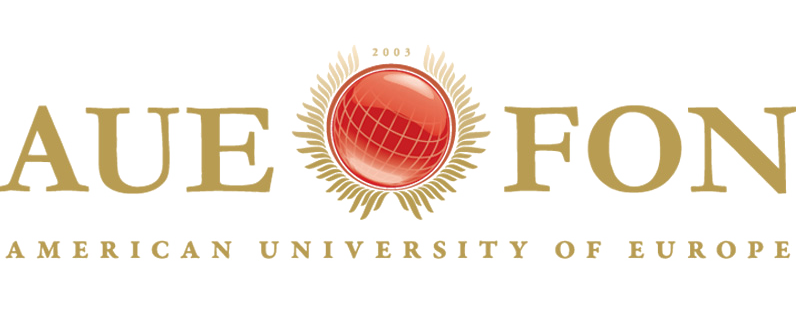
First Private University Fon
FON University is a private High Education Institution (HEI) established in 2003. It provides research, teaching and training activities in the area of social sciences, humanities and applied sciences. It offers education in Macedonian, Albanian and English languages within two study cycles and at 3 university campuses. FON has been in the process of intense internationalisation for several years. It has signed more than 100 agreements for international bilateral and multilateral cooperation, including Erasmus plus K1 Inter-institutional agreements with HEI from the EU and the Western Balkans region. FON is the co-founder of the Alliance of Central-Eastern European Universities (ACEU) establishing cooperation in multilateral projects, curricula development, academic mobility, joint teaching and research projects.
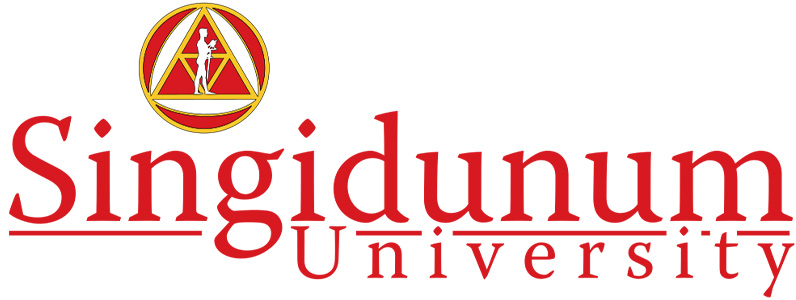
Univerzitet Singidunum
Established in 2005, Singidunum University was the first private university in Serbia to receive full accreditation and license to conduct academic research, including co-ordinating and participating in publicly (co-)funded research projects, and offer bachelor’s, master’s, and doctoral degrees under Serbia’s current (new) Law on Higher Education, in three major academic fields: the humanities and social sciences, mathematics and natural sciences, and technical and technological studies, in Serbian and English. As a constituent part of Singidunum University, the Faculty of Media and Communication (FMK) in Belgrade has engaged in various international collaborations since its founding in 2007. The Faculty has become a major regional reference in terms of higher education in art and aesthetics, design, political and critical theory, and gender studies.
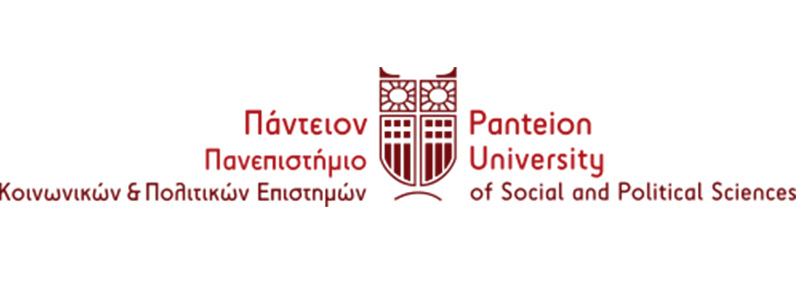
Panteion Panepistimio Koinonikon Kaipolitikon Epistimon
Founded in 1927, Panteion University is the oldest University of Social and Political Sciences in Greece. It is one of the leading academic communities with a strong reputation mainly in the fields of constitutional, administrative and international law, international relations, economics, sociology, political science, psychology and media studies. Its Environmental Protection program is on the Academic Impact List of the United Nations. The Department of Political Science and History is the organic evolution of the first political science department in Greece. The department is devoted to the study and research of political science and modern history, with an emphasis on: comparative politics; political sociology; contentious politics and social movements; political and electoral behaviour; globalization studies; constitutional law; economic theory and history; political philosophy and social theory; minorities and migration; public history; modern and contemporary world, European, Balkan and Greek history.
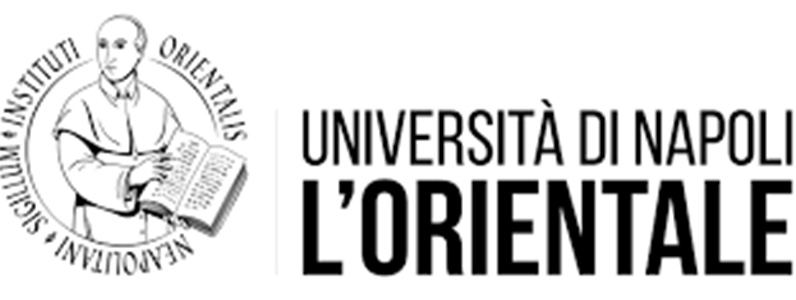
Università di Napoli L’Orientale
The University of Naples “L’Orientale”, founded in 1732, is the oldest school of Sinology and Oriental Studies in Europe and has a strong tradition of language, cultural and social studies, relating to Europe, Asia, Africa, the Americas and Oceania. Since its foundation the “Orientale” has set itself up as a center for learning and research which aims to focus on similarities and differences between various cultures. The University has an innovative approach, offering students intellectual experiences and academic input which fundamentally enables them to encounter, interact and communicate with diverse cultures, histories and experiences. The University is organized in three Departments, four interdepartmental centers providing essential services and 14 Study Centres, a Seminar School on the island of Procida and 7 specialized Libraries. The academic staff participates in various national and international research programs and the University works to promote technological transfer and the applied development of research results.
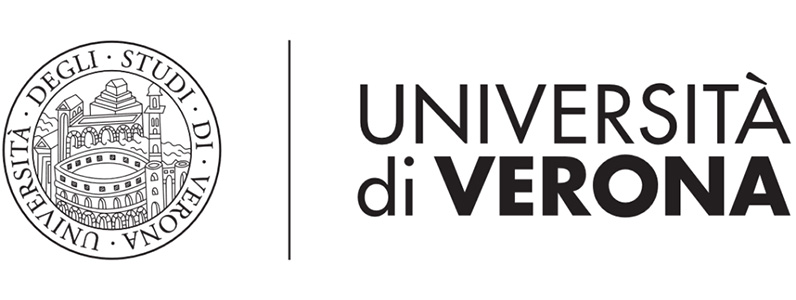
Università degli Studi di Verona
Founded in 1982, the University of Verona is a young and innovative public university. It currently includes 12 departments (covering social sciences and humanities, life sciences, biotechnology and engineering), 4 PhD schools, and many research centres and libraries. It is strongly committed to the internationalization of academic research in several areas. It is placed in 72th position in the Times Higher Education Young University Rankings 2019 (universities younger than 50 years). It has been managing totally 40 H2020 projects and 19 Erasmus+ projects. Related to the work of the Department of Human Sciences are the programs of two very important research centers. The Research Center for Politics and Theories of Sexuality PoliTeSse (Director: Lorenzo Bernini; Scientific coordinator: Massimo Prearo); and The Hannah Arendt Center for Political Studies (Director: Olivia Guaraldo; President: Adriana Cavarero).
Beneficiaries
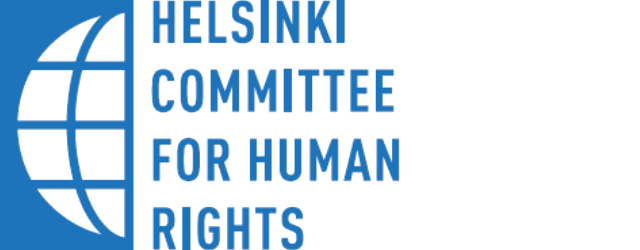
Helsinki Comettee for Human Rights
One of the beneficiary organizations of the ERASMUS Strategic Partnership Geo-Philosophy of the Balkans is the Helsinki Committee for Human Rights.
The Helsinki Committee for Human Rights is a civic association registered in 1994. The Committee monitors the situation with human rights, provides legal assistance, co-operates with other organizations and state bodies for the purpose of improving the promotion, respect and protection of human rights and freedoms. The Committee’s goal is protection and promotion of the human rights and freedoms guaranteed with the Constitution of the Republic of North Macedonia, the international instruments and the Helsinki Final Act from 1975, as well as building democratic conditions in which they can be exercised based on the rule of law. The Committee sets off from the premise that all people should have the possibility to enjoy and practice their basic rights and freedoms and should be able to protect them in case of violation or limitation. This is the basis of the rule of law, human rights and democracy.

IPAK Centre
An important beneficiary that shares practices and values with the Gobalkans project is the Research Center for Cultures, Politics and Identities - IPAK Center. The Center is founded as a result of long-term cooperation of students, scholars, activists, artists and other political friends from Serbia, SEE, Europe, and from all around the world. Situated at the Faculty for Media and Communications in Belgrade, the Center is involved in cultural and political research studies devoted to reflecting on and questioning of rather complex issues of identity formation, difference, otherness and diversity, cultural, political and activist doing, as well as with shared researches deployed locally, regionally and globally.
Its mission is to encourage, spread and advance critical thinking and to initiate innovative discourses, to develop trans-disciplinary knowledge and contemporary research. It supports critical, non-normative education, research and activist agency that questions embedded and stable notions of identity, as well as predominant discourses in categorizing and creating meaning and valuing of individuals, groups and communities. IPAK Center works in cooperation with selected local/regional/international educational institutions, cultural, political, and activist organizations and focal point groups (Women, queer communities, Roma, and other minority groups).
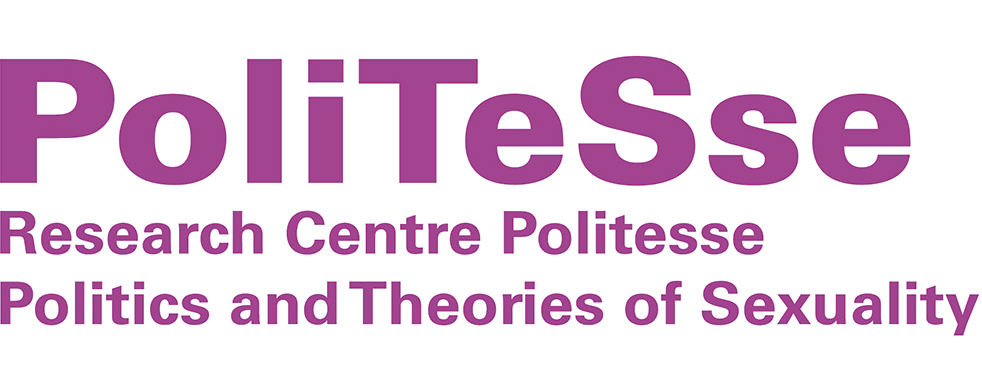
Politesse
The Centre PoliTeSse – Politics and Theories of Sexuality – has research, educational, and consultancy purposes. It brings together lecturers and researchers who investigate the phenomena of human sexuality in its philosophical, political, legal, religious, ethical and bioethical, anthropological, cultural, sociological, pedagogical, psychological, medical and historical implications with both theoretical and applicative aims. Its aim is to defend the value of the dignity and integrity of the person affirmed by the European Union Charter of Fundamental Rights – arguing that fundamental human rights include self-determination of gender identity and sexual orientation, and thus the rights to health and safety of sexual minorities – and to oppose sexism in all its forms.
The Centre positions itself as an interdisciplinary pole of advanced research and privileges dialogue between different methods, combining the tradition of the thought of sexual difference, with the latest developments in Gender Studies, of Queer Theories, Post-Colonial Studies, Critical Race Theory and Disability Studies, theoretical research (philosophy, religious studies, criticism of literature, theatre and film, musicology, cultural studies) with empirical research (medicine, anthropology, psychology, pedagogy, sociology, law, history), the qualitative approach with the quantitative.

Hellenic League for human rights
The Hellenic League for Human Rights (HLHR) is the oldest human rights organisation in Greece. The League was set up in 1936 with Aleksandros Svolos as president and was dissolved by the dictatorship of the 4th of August. It was reinstituted in 1953. The HLHR was founded and developed in an environment of a shrinking democracy; an environment where the struggle for the protection of human rights was politically dangerous but nevertheless focused on its goals. The post-1974 period in Greece provided a safer environment for human rights defenders. Nevertheless, this new era revealed itself to be a lot more complex in what concerns understanding, preventing and challenging the new forms of violations which arise from the social complexity of our times. Since its establishment, The League has been a permanent member of the International Federation for Human Rights (FIDH) and represents this network in Greece and participates in its organs. According to its statute, the League “undertakes activities in the domain of dissemination, advocacy and development of principles that reckon to men rights and freedoms, integrated to social structures”. To optimise the achievement of its goals, the League envisages cooperation with other national or international bodies active in the domain of human rights.
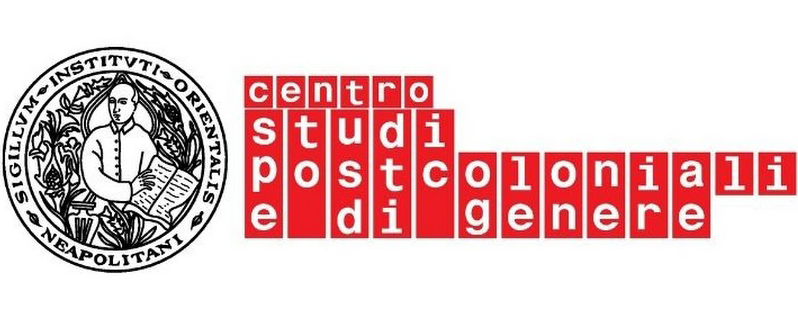
CSPG
The CSPG - Center for Postcolonial and Gender Studies - based at the University of Naples ‘L’Orientale’, Department of Human and Social Sciences, focuses on a critical understanding of the relationships between knowledge and power within a contemporary scenario that has been constructed through processes of colonialization and subjugation. Therefore, the project’s intersection of histories and cultures as well as its analysis of inequalities – based on race, class, and gender – through artistic practices reflect the work of the different Research Units of the CSPG. The three main Research Units of the Center focus their interests in the areas of Cultural Studies, Postcolonial and Gender Studies, and New Media. Each Unit, with its own staff, conducts research activities and organises and participates in scientific and dissemination initiatives.
Show more ↓
M.A.M. Matri-Archive of the Mediterranean. It is a Research Unit gathered around the archival project M.A.M. (P .O.R. Campania, ESF 2007-2013, Axis IV , Human Capital). The Unit has created the digital platform M.A.M., a website that aims at collecting, preserving and communicating contemporary works – visual arts, photography, installations, choreography, performance, painting, comics, etc. – realised by female artists in the Mediterranean area.
www.matriarchiviomediterraneo.org
TRU Technoculture Research Group. The Technoculture Research Unit was set up with the aim of thematising the entrepreneurial relationship between culture, technology and technique, which manifests itself with particular intensity in contemporary digital media, computation and computer networks, but which involves all expressive forms of culture – such as the visual arts, writing and music.
www.technoculture.it
FF Future Feminisms. This is a reading and research group composed of women of different generations and interests. The readings started with the debate arising from the new ecologism proposed by Donna Haraway, and continued with women’s speculative fiction in its long history, between science and imagination, reality and fiction. The various aspects of the research are illustrated in the collective volume, edited by Lidia Curti, Femminismi Futuri. Theories, Poetics and Fabulations (Iacobelli, 2019).
The CSPG organises the transdisciplinary seminar series Borderscapes open to the involvement of citizens and non-academic audiences. The meetings, in fact, see the participation of artists, performers, directors, cultural workers and professional figures with whom the Centre shares its working and thinking practices with educational, cultural and societal development value.
Show less ↑
Affiliates

Interzona
Interzona is a laboratory for independent Arts and Culture founded in Verona in 1992.
It researches and promotes expression of the independent art scene in Music, Performing and Visual arts, Theatre, Cinema and Literature, with particular attention to experimental and innovative forms. Interzona’s work enhances the value of urban and social spaces, through projects capable of renewing both the territory and the relationships between the people who inhabit it. Interzona also recognises the valorisation of abandoned places with strong urban-architectural connotations, spaces emblematic of Verona's recent past that needed to be returned to a cultural and aggregative use by citizens. Hence, the decision to operate within Specialised Refrigeration Station no. 10 (Europe's largest pre-war cold storage facility), a building granted in 1993 by the municipal administration in the area of the former Magazzini Generali in Verona, which became the association's headquarters in January 1994. At the end of 2006, Interzona moved to Magazzino 22, where it stayed until November 2016. Currently, the association has no headquarters.

MoMi
The MoMi - Center of Cultural Elaboration on Modernity and International Migrations - is based at the University of Naples “L’Orientale”, Department of Human and Social Sciences. The Center activities focus in particular, through a multidisciplinary lens, on the emerging forms that migration processes are taking, beyond the rhetoric of ‘emergency’ policies. In particular, the MoMi promotes multidisciplinary strategic programs through meetings, periodic seminars and publications, developing an online information platform, in collaboration with non-academic subjects, such as local institutions and associations operating in the field of multiculturalism.
The MoMi aims to become a referent point for studies, research and consultancy for those working in the immigration and emigration sector: both dimensions that are still very active in the Campania region. The Centre aims to contribute to the lively international debate, building on the comparative work that can be provided by partners from different institutions involved in the network. In particular, the Migrinter Laboratory of the University of Poitiers is a structural partner of the Centre, with whom they envisage the construction of a shared Master's degree that enriches the pedagogical proposals of the L’Orientale.

The “Hannah Arendt” Centre for Political Studies
The "Hannah Arendt" Centre for Political Studies, established in 2016, in the Department of Human and Social Science, University of Verona, is directed by Andriana Cavavero. It aims to intertwine philosophical-political research in the field of Arendt studies with political research and reflection on the contemporary, in an interdisciplinary perspective open to the contribution of the humanities and social sciences. To this end, the Centre brings together scholars from different disciplinary backgrounds and makes use of an extensive network of national and international scientific relations and collaborations.
The Centre promotes research on issues and problems concerning the contemporary world. These include: the themes of political freedom, public happiness and democracy; the relationship between the institutional dimension and the participatory dimension of political life, with particular regard to the issues of citizenship, power and violence, inclusion and exclusion.
As a place of political and cultural education and confrontation, the "Hannah Arendt" Centre for Political Studies also intends to address a broad public and to contribute, also in collaboration with other subjects, to the development of critical reflections and knowledge on politics and the "common world".

Alice news - Centre for Social Studies (CES) of the University of Coimbra
Alice News was originally created in 2012 within the research project “ALICE, Strange Mirrors, Unsuspected Lessons: Leading Europe to a new way of sharing the world experiences” (funded by the European Research Council and directed by Professor Boaventura de Sousa Santos from 2011 to 2016, at Centre for Social Studies (CES) of the University of Coimbra). With the end of the Alice project, Alice News remained partially inactive and for this reason, in May 2018, a new team was created to revitalize the initiative.
Alice News is an online Magazine edited by a group of volunteers, scholars and professionals coming from a range of disciplines and geographical perspectives. The group of editors operate remotely, as they are based in different locations, but they consider the Centre for Social Studies (CES) their home-place.
Their motto is “insurgent and intercultural content” because they value diversity and they intend to be an instrument for the dissemination of knowledge emerging from the bottom up and from a wide range of angles. Alice News aims at providing contributions to amplify the voices of activists, scholars, professionals, communities and organizations that struggle against any sort of oppression and especially colonialism, capitalism and heteropatriarchy. Their critical and political reference are the Epistemologies of the South, as elaborated by Boaventura de Sousa Santos and the research community he coordinates.